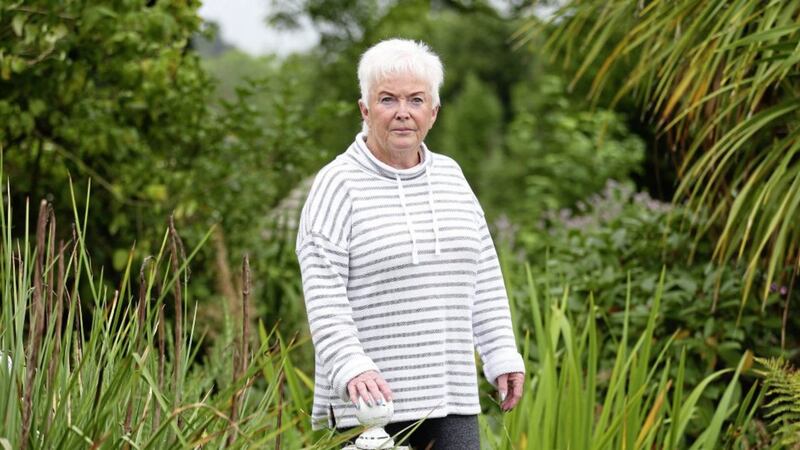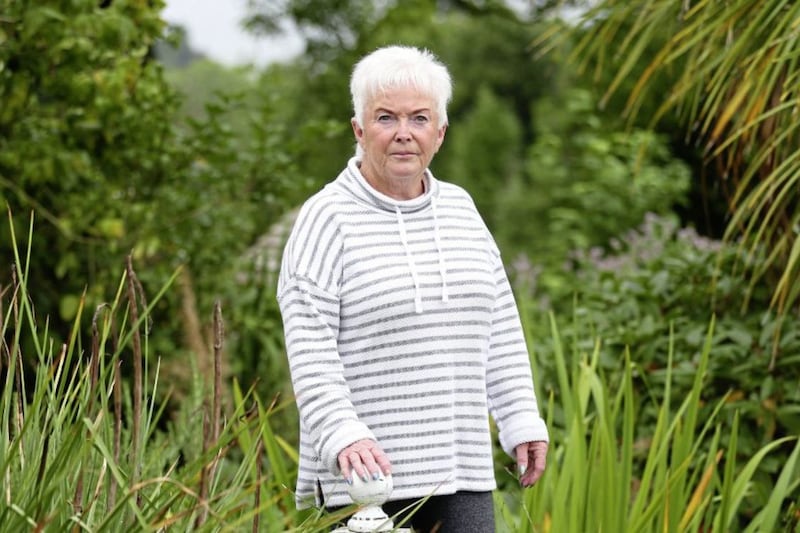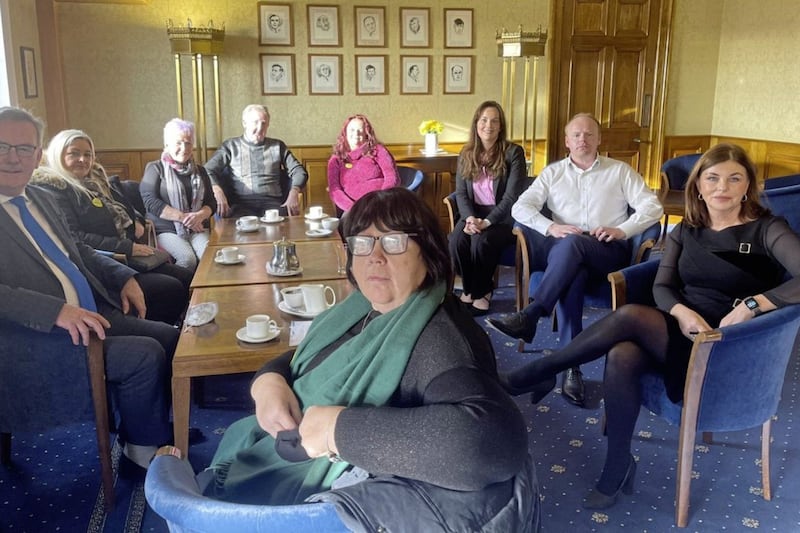A SURVIVOR of a mother and baby home has said the impasse at Stormont is hampering the establishment of a public inquiry, nine months after ministers agreed one should be set up.
Adele Johnstone, from Birth Mothers and their Children for Justice, said survivors have been left deeply frustrated that the lack of a proper executive has delayed an inquiry to investigate the treatment of women and their babies in the homes.
Following recommendations made by an expert panel, the executive agreed in November that a public inquiry should be established, an independent panel set up to hear survivors' testimonies, and that compensation should be paid to victims.
Mother and baby homes, run by the Catholic Church, the Church of Ireland and the Salvation Army, existed in Northern Ireland until 1990.
Ms Johnstone said campaigners had been pushing for justice for more than 15 years.
"We feel very disappointed," she said.
"We've seen what happened with the HIA (Historical Institutional Abuse) inquiry and we've seen what happened with Troubles redress and now we're another one along the line."
A landmark report, published in January last year, found that around 10,500 women and children, including rape and incest victims and a girl as young as 12, were sent to homes in the north between 1922 and 1990.
Around 3,000 women were sent to Magdalene Laundries.
Ms Johnstone said survivors have been let down.
"We were told that it (an inquiry) would be implemented as soon as possible, that legislation for redress would be sought as soon as possible and the setting up of the independent panel where we could give our testimonies in a non-adversarial setting would also be set up," Ms Johnstone said.
"That is all stalled due to the political situation in Northern Ireland."
Ms Johnstone said although the Executive Office is continuing to work on draft legislation, "even if it was ready tomorrow it couldn't be passed because there is no sitting assembly".
She said women and their children who passed through the institutions need to know that help is available.
She said a proper communications strategy is needed to reach out to victims, including those now living in Britain or further afield.
"There is a very small funding allocation for a communications strategy," she said.
She added: "We were told there would be a strategy to bring more people into the process, mostly targeting older people through local newspapers and radio and eventually reaching out to the wider diaspora."
Police are investigating allegations of abuse and mistreatment in mother and baby homes and laundries.
But Ms Johnstone said survivors need more information about wider support.
"The PSNI are doing their bit but a lot of people would be very nervous about approaching them," Ms Johnstone said.
She added: "What happened was that women were shamed. They were shamed by the community, the clergy, their families, their peers and put into institutions.
"With that burden of shame you're afraid. Authority figures terrify you to be quite honest."
Solicitor Claire McKeegan, of Phoenix Law, acts for Birth Mothers and their Children for Justice.
She told The Irish News she is writing to the head of the Civil Service and the Executive Office to ask why the commitments agreed have not been enacted.
"We would ask them to appoint a chair to the inquiry, and if not, explain why," she said.
She added: "Our clients deserve to have the recommendations that they campaigned for to be implemented."
She said victims of mother and baby homes and laundries were facing the same frustrations which survivors of institutional abuse experienced several years ago.
A redress scheme for institutional abuse survivors was only established in 2020 after intense lobbying, a landmark court judgment and legislation at Westminster.
A Court of Appeal ruling in 2019 found that Stormont's Executive Office had the power to compensate survivors and victims of institutional abuse in the absence of an assembly.
"It's disappointing that another group of traumatised victims and survivors have been let down by the current dysfunctional executive," Ms McKeegan said.
She added: "Ministers made a cast-iron commitment to deliver for victims and survivors of mother and baby homes and were the executive to be in place, this would be done."
Ms McKeegan said many of her clients "are elderly and cannot wait one minute more for justice".
"The political parties in Northern Ireland gave full and unequivocal support to the findings of the truth and recovery panel in relation to the investigation and truth recovery and redress that was recommended," she said.
A spokesman for the Executive Office said it is continuing to engage with survivors and victims.
"The development of a communications campaign to reach those most affected will be a critical part of the work of the independent panel to be established under the programme," he said.
"Anybody who has been affected by their experiences in or because of the above institutions can avail of immediate support from the Victims and Survivors Service, which is also engaged with victims/survivors in co-designing the type of support needed."
He added: "More support is planned for victims and survivors and the Executive Office will continue to engage with those affected to ensure it fully addresses the needs they identify."
To contact the Victims and Survivors Service, ring 028 90 279 100 or write to enquiries@vssni.org
Birth Mothers for Justice can be contacted on 07510064606 between Tuesday and Thursday, 10am to 4pm.
A dedicated PSNI team cane be contacted during working hours on 028 9090 1728 or via MotherBabyHomes.Magdalenelaundries@psni.police.uk








